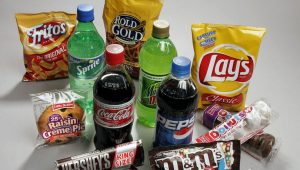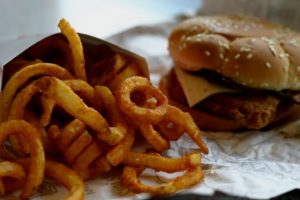
Is your plate really healthy? Next time when you sit for any meal, just look at the food that you give to your body and check if it is nutritional or junk food.
We all are familiar with the term ‘junk food’. It is any food that is rich in calories, sugar, salt, and trans fat. Usually, it does not contain enough nutrients like micro minerals, for example, fibre, iron, calcium, zinc, omega fatty acids and other basic nutrients required by our body for growth and development.
Such food can also be considered convenience food as it saves the consumers time required to prepare it. But, opting for junk food just to avoid the preparation time for healthy food can actually turn out to waste your time, money and health in the long run.
Choosing healthy over junk can be difficult at the beginning, but once you get healthy eating habits, it can actually bring the best to the body and mind. But, how?
The addictive food

There are various reasons why I or any adolescent would easily fall for this tempting nature of junk food. Firstly, it is easily available. Second, it is cheap and most importantly it is luxuriously filled with a proper blend of fat, salt, and sugar, which is generally liked by our taste buds.
The third reason is our self-control system is still limited and it gets tempted by flashy advertisements. The advertisements are made in such a way that attracts us psychologically, emotionally and visually and they end up interfering with our brains.
The pictures of food that they show in a way seduce us by actually reducing our capacity to think practically. The part of the brain called the hippocampus and the dorsal part of the prefrontal cortex, which are responsible for decision-making, get partially deactivated with the visual representation of food.
For example, imagine it is raining and you see luscious momos with mouth-watering jhol on Snapchat. You will be tempted immediately. The reasons are: your prefrontal lobe gets partially inactive and the second reason: your friend has posted the photo.
In short, you not only get attracted by visual representation but also get influenced by what people eat.
Further talking about adolescents, as they go through a lot at school, when they come back home hungry, they always look for something that would give them pleasure. Therefore, if there is no guidance they indulge themselves in the consumption of junk food, they are likely to eat junk food.
If you are a parent and reading this, try to check your kitchen shelves and identify all the junk available. You will be amazed! The savoury taste of junk food does not always come from the mass media, it comes from the home itself.
The science behind the temptation

Adolescents opt for junk food also because their brain has not yet been developed properly. The prefrontal cortex, which is a part of the brain responsible for self-control and decision-making, is on its way to being developed by age 25.
The other science behind it is the chemical dopamine. Dopamine is a neurotransmitter referred to as pleasure or the happy hormone in fancy terms. When they eat junk food, they feel good as the brain releases the pleasure hormones.
There are various diseases that might be caused due to consumption of junk food. They are type 2 diabetes, depression, problems in memory and concentration, brain abnormalities, eating disorders, cancers, irregularities in the menstrual cycle, irritable bowel syndrome, non-alcoholic fatty liver, hypertension, obesity, and interference in the growth and development of the overall body.
Let us look at how heart attacks occur. First, junk food increases the sodium level in the blood, which in turn increases your blood pressure. Second, high fat intake increases the bad cholesterol levels in the blood and later this cholesterol starts to get deposited in the artery walls, which decreases your blood supply to the heart and thus causes heart attacks.
Teenagers might not consider these factors at their age because of the chemicals rushing into their bodies. But, it is the duty of parents, teachers, health workers and other adults to explain to them that eating junk food can lead to these diseases later in life.
In addition to this, even moderate consumption can make teenagers addicted, overweight, less productive, and lazy and drain them mentally, and physically. This further leads to low academic performance. This low academic performance results in stress like anxiety, self-doubts, low confidence and sometimes depression.
Avoiding the consequences

Today, Nepali teenagers or their entire population can still have control over unhealthy eating habits.
What is the way out of this mess then? It is always best to do or eat only in a limited manner. The problem with junk food is that it has nothing else but a high amount of fat, sugar, calories, and salt in it.
Next, the most important thing is to educate teenagers about the health impacts of junk food rather than saying ‘no’ without any explanation. Teenagers’ brains do not want to hear no. Their brain is still equipped to do what is not allowed.
Next, you can always try to add healthy food and tell them the reason behind eating the particular food. Tell them how eating junk food can hinder their learning capabilities and mental health. Allow them to eat junk food once or twice in a month so they do not end up craving it.
Serve them healthy dishes in attractive cutlery so they feel happy while eating. Put more of healthy tit-bit options at home so that they can opt for those while watching movies or playing games. Always try to eat simple and nutritious food items with them so they copy you.
Summing up, as a teenager I accept the fact that unhealthy food attracts us the most. But, how do I avoid this? It is all about the way you educate your brain and the way you think.
























